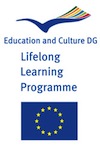Process of adoption
The process of adoption started with the "Commission Staff Working Document, Towards a European Qualification Framework for Lifelong Learning" on 8 July 2005 which outlined the main features of a possible future European Qualification Framework and constituted the basis for consultation with policy makers, social partners, stakeholders and experts in qualifications systems throughout Europe. It was based on a previous consultation document prepared by the Commission with the support of an expert group including representatives from various educational sectors and from labour market. Support for the expert group was provided by QCA (Quality and Curriculum Authority, UK).
Previously, in May 2005, in Bergen, Ministers responsible for higher education underlined "the importance of ensuring complementarity between the overarching framework for EHEA and the proposed broader framework for qualifications for lifelong learning encompassing general education as well as vocational education and training".
The consultation of Member States, social partners, sectoral organisations, NGOs, networks and so on began in mid 2005 after the informal meeting of European Ministers of Education. The Commission received 125 responses and contributions coming from 31 countries during the period 5 July to 31 December 2005. These responses in many cases reflected extensive national and Europe-wide (networks or European organisations) consultation processes organised by the respondents.
On the basis of the results of this consultation, the Commission jointly with the Hungarian Ministry of Education organised a Conference in Budapest, on 27-28 February 2006, "The European Qualifications framework: taking stock of the Consultation" and presented an analysis of the responses and asked for discussions. The EQF was seen as a constructive initiative which should contribute to the transparency, transferability and recognition of qualifications at European level. However this global support was conditional on further developments and clarifications, in particular the simplification of descriptors, reference to Bologna Process for levels 6-7-8, and a call for testing. A call for projects to support the implementation of EQF was launched by the Commission in 2006, 12 projects were selected and started their work in early 2007; a second call for projects was launched in 2007.
Taking into account these reactions, the Commission presented a proposition of Recommendation on 5 September 2006 ("Implementing the Community Lisbon Programme, Recommendation of the European Parliament and of the Council on the establishment of the European Qualification Framework for Lifelong Learning").
The European Parliament voted in favour of adopting the Recommendation on the establishment of the EQF for lifelong learning. The approval envisaged that Member States relate their national qualifications systems to the EQF by 2010 (currently 6 countries have already a NQF), and that individual certificates or diplomas should bear an EQF reference by 2012. European countries without a National Qualification Framework are now working on developing one.
Read more about EQF in the European Commission site >


.png)
